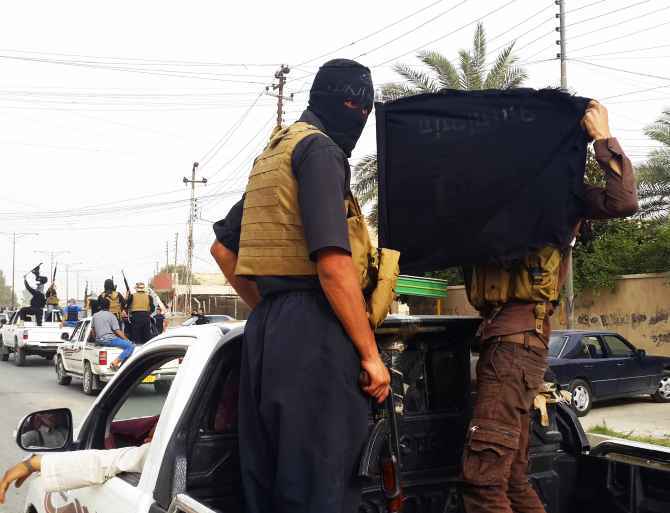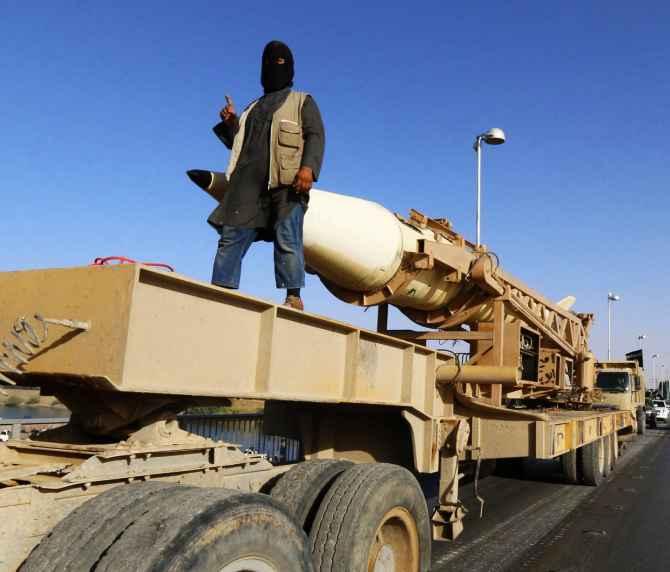Photographs: Reuters Vicky Nanjappa/Rediff.com
'They clearly kill people for the cameras. You will notice the terrorists -- the executioners and others in the shot -- seem very much at ease with what they are about to do. They take to their jobs with gusto.'
The Internet is being effectively harnessed by the ISIS terror group to recruit fresh blood. Vicky Nanjappa/Rediff.com reports.
How did 18 young Indian men join the terror outfit, the Islamic State in Iraq and Syria?
These Indians -- from Kerala, Maharashtra and Tamil Nadu -- are among the 8,000-strong ISIS militia, most of whom are foreigners in the Levant and have been indoctrinated on the Internet, especially social media.
Aki Peritz, co-author of the book Find, Fix, Finish: Inside the Counterterrorism Campaigns that Killed bin Laden and Devastated Al Qaeda and a former Central Intelligence Agency counter-terrorism analyst, told Rediff.com, "They clearly kill people for the cameras. You will notice the terrorists -- the executioners and the others in the shot -- seem very much at ease with what they are about to do. They take to their jobs with gusto."
"Even the chants of 'Allah-u-Akbar' that accompany each murder are happy, full-throated ones," Peritz added. "And they sometimes go well beyond execution and into mutilation."
Kindly ...
The Internet: ISIS's favourite playground
Image: An ISIS terrorist on the streets of Syria's Raqqa province.Photographs: Reuters Vicky Nanjappa/Rediff.com
"ISIS's delight in its gruesome exploits indicates the way its leaders would run their self-declared 'caliphate' across Iraq and Syria. Their bloodthirstiness may prove to be the group's downfall," says Peritz. "No other Iraqi insurgent organisation or Sunni tribe subscribes to its fanatical agenda."
"It is hard to imagine that any permanent political settlement there could tolerate such stunts for very long. The Sunni tribes of Iraq will eventually turn on ISIS, as they have done in the past. When that occurs, expect even more bloodletting -- and more gruesome videos."
"They (the ISIS) are using a multi-layered strategy to gain publicity -- both on the Internet as well as in traditional media outlets. They reach different audiences," Peritz added.
An Indian intelligence official told Rediff.com that if camps were being held for indoctrination or training, it was possible to track them down and put an end to it. But what could be done when the same occurs over the Internet?
"Is it possible to monitor all the content on the Internet? How many sites will you shut down?" he asked.
"No government in the world can shut down sites of this nature as there are too many of them. Once one is shut, another will emerge," he added. "Moreover, it is impossible to track what each one is doing on the Internet."
Indian security agencies now plan to get the police in the states to request heads of mosques and community leaders to preach daily to younger Muslims the horrors of joining such brutal jihadi groups and accessing radical material on the Internet.



article